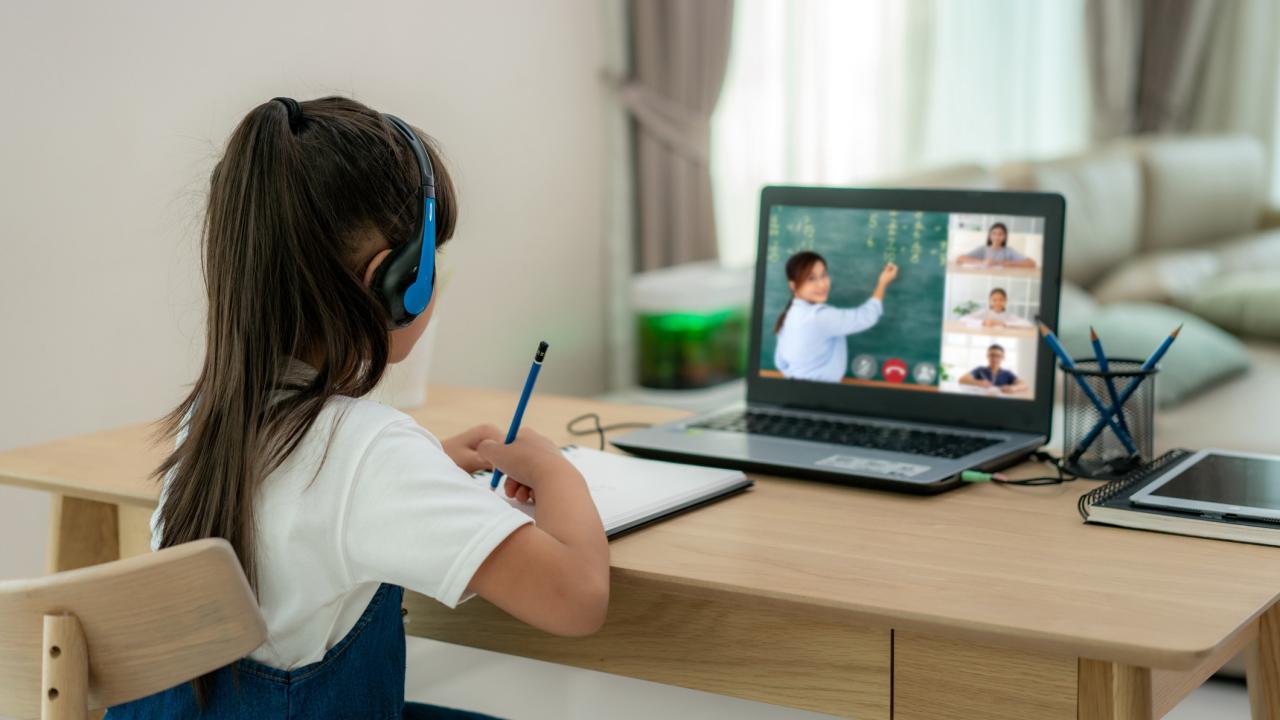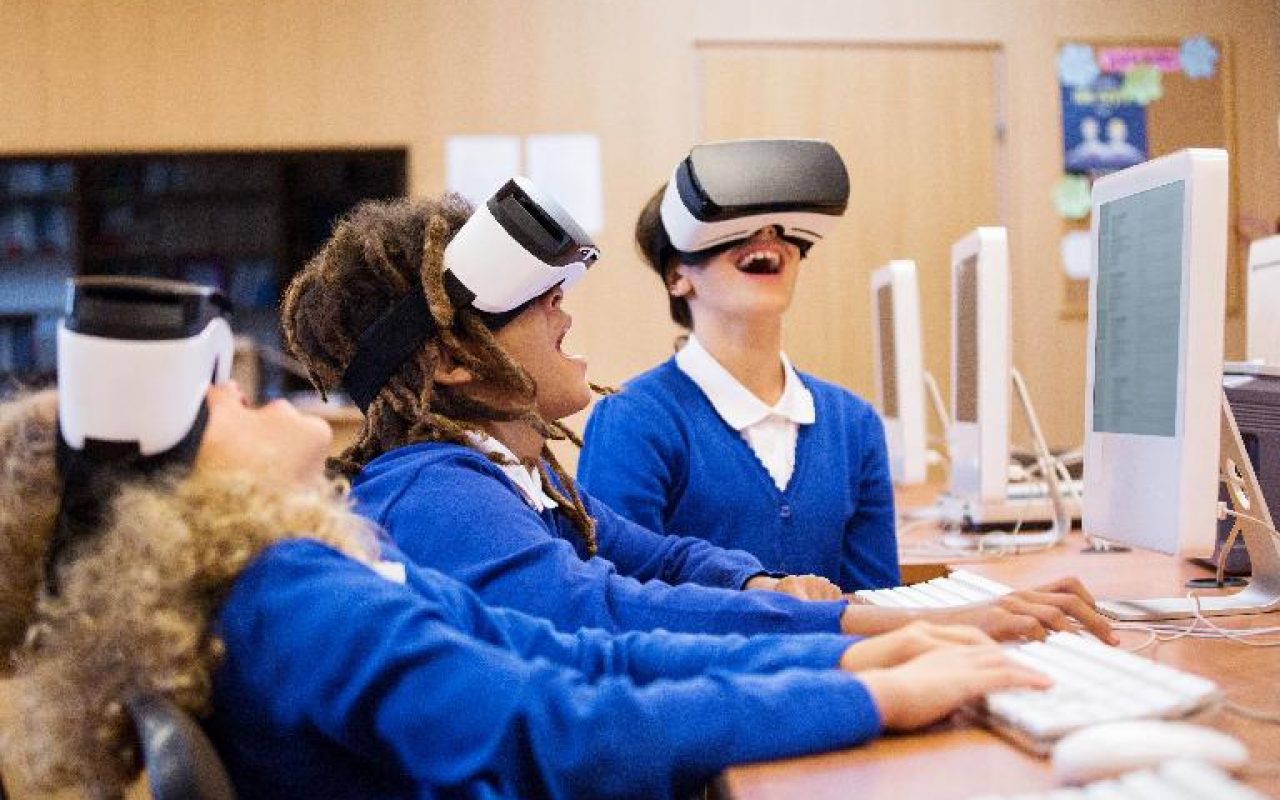For centuries, the classroom has remained largely unchanged: a teacher at the front, a textbook as the primary source of knowledge, and a standardized curriculum for all. This industrial-age model, while effective for its time, is ill-equipped to meet the challenges and opportunities of the 21st century. The world is changing at an unprecedented pace, and the skills needed to thrive in this new landscape are evolving just as rapidly. Today, a profound transformation is underway, one that is being driven by a powerful blend of cutting-edge technology and a new philosophy of education. This is tomorrow’s digital learning revolution, a movement that is fundamentally reshaping how we learn, how we teach, and what we value in education.
This isn’t about replacing teachers with robots or swapping a physical classroom for a screen. It’s about empowering students with a personalized, engaging, and accessible education that is a direct reflection of their unique needs and passions. It’s an era where artificial intelligence becomes a tireless tutor, virtual reality a boundless classroom, and gamification a powerful tool for engagement. This article is a deep dive into this transformative era, exploring the core pillars that define the future of education, the groundbreaking technologies that are making it a reality, and the critical challenges we must navigate to ensure this future is one that is equitable, humane, and profoundly meaningful.
The Grand Shift

To understand the power of the digital learning revolution, we must first appreciate the flaws of the traditional model it is replacing. The move from a one-size-fits-all approach to a personalized one is a profound philosophical leap.
- The Legacy of the Industrial-Age Classroom: The traditional classroom, with its rigid schedule and its standardized curriculum, was a product of the industrial age. It was a model that was designed to train a workforce for a world that no longer exists. It was a model that assumed that every student learns at the same pace, in the same way, and with the same level of interest.
- The Catalyst for Change: The digital age has shattered the premise of the traditional classroom. The internet has made knowledge ubiquitous, and new technologies have made education more accessible than ever before. The global pandemic accelerated this shift in a profound way, demonstrating that education can happen anywhere, at any time, and in any format.
- The Promise of a Personalized Education: The future of education is a personalized one. It is a model that believes that every student is a unique individual with their own strengths, weaknesses, and passions. The goal of a personalized education is to provide every student with a curriculum that is a direct reflection of their unique needs, a learning experience that is tailored to their individual pace and their individual learning style.
The Four Pillars of the Future of Learning
The future of learning is not a monolith; it is a tapestry of new and innovative approaches that are being woven together to create a more dynamic and flexible professional landscape.
A. Personalized and Adaptive Learning
This is the most important pillar of the digital learning revolution. It is an approach that uses technology to create a curriculum that is a direct reflection of a student’s unique needs.
- AI Tutors: A student will no longer be limited to a single teacher. They will have an AI tutor that is available 24/7, a tireless partner that can answer their questions, provide them with feedback, and guide them through a subject at their own pace.
- Adaptive Learning Platforms: These are platforms that use machine learning to identify a student’s weak spots and provide them with a customized lesson plan. A student who is struggling with a specific concept might be provided with additional resources and exercises, while a student who is excelling might be provided with more advanced content.
- Personalized Content Creation: Artificial intelligence will be used to create personalized content that is tailored to a student’s specific learning style. A student who learns visually might be provided with a video, while a student who learns auditorily might be provided with a podcast.
B. Immersive and Experiential Education
The future of learning is not a 2D experience on a screen; it is a 3D, immersive, and experiential one.
- Virtual Classrooms and Virtual Field Trips: A student will no longer be limited to a single classroom. They will have access to a global virtual classroom, a place where they can collaborate with students from all over the world. They will be able to take a virtual field trip to the pyramids of ancient Egypt or to a remote rainforest, providing them with a new level of engagement and a new way of learning.
- AR for Hands-On Learning: Augmented reality (AR) will be used to provide a new kind of hands-on learning. A student could use an AR app to see a 3D model of a human heart in their living room or to perform a science experiment in a virtual lab. This will provide a new level of engagement and a new way of learning.
- The Metaverse and Digital Campuses: The metaverse is not just a gaming platform; it is a new social and educational frontier. A new generation of digital campuses is being created that allows students to meet, collaborate, and learn in a shared virtual space. It is a world where a student can walk through a virtual library, attend a virtual lecture, or collaborate with students from all over the world.
C. The Democratization of Education
The future of education is a global, equitable one. It is a movement that believes that a high-quality education should not be a luxury but a fundamental right for everyone, regardless of their location, their income, or their background.
- Online Learning Platforms: A new generation of online learning platforms is providing people with access to a high-quality education from all over the world. These platforms, with their flexible schedule and their affordable price, are a powerful tool for democratizing education.
- Microlearning and Skills-Based Education: The future of education is a lifelong one. It is a model that believes that education is not just something you do in a classroom but a continuous journey of learning and growth. Microlearning, which involves breaking down complex subjects into small, manageable chunks, and skills-based education, which focuses on providing students with the skills they need to thrive in the modern workforce, are a powerful expression of this new era of education.
D. Lifelong Learning and Skills-Based Education
The future of work is a dynamic one, with new technologies and new industries emerging every day. The future of education is a lifelong one, with a focus on providing people with the skills they need to thrive in a constantly changing professional landscape.
- The New Curriculum: The new curriculum will be a blend of traditional academic subjects and new, skills-based subjects, such as coding, data analysis, and digital marketing.
- The New Role of the University: The university of the future will not just be a place for a four-year degree. It will be a place for lifelong learning, a place where people can go to acquire new skills, to update their knowledge, and to stay relevant in a constantly changing professional landscape.
The Technological Toolkit for the Revolution

The visionary principles of the digital learning revolution are made possible by a suite of cutting-edge tools and technologies that are fundamentally changing the way we learn and teach.
- Artificial Intelligence and Machine Learning: This is the engine of the revolution. AI is being used to personalize the learning experience, to automate assessment and feedback, and to provide students with a new kind of learning companion.
- AI Tutors and Adaptive Learning Platforms: The personalized learning experience of the future is made possible by a new generation of AI tutors and adaptive learning platforms that use machine learning to identify a student’s weak spots and provide them with a customized lesson plan.
- AI for Assessment and Feedback: AI is being used to provide a new level of assessment and feedback. An AI can analyze a student’s work and provide them with real-time feedback, and it can help a teacher to identify a student who is struggling and to provide them with additional support.
- Virtual and Augmented Reality: The future of learning is a 3D, immersive experience.
- Immersive Classrooms and Virtual Field Trips: VR and AR will be used to create a new generation of immersive classrooms and virtual field trips that will allow students to explore the world in a new and exciting way.
- AR for Hands-On Learning: AR will be used to provide a new kind of hands-on learning, a new way for students to interact with a subject and to learn by doing.
- Gamification and Microlearning:
- Making Learning Engaging: Gamification, the practice of using game-like elements to make learning more engaging, is a powerful new trend in education. It is a way to motivate students, to foster a sense of competition, and to make learning more fun.
- Breaking Down Complex Subjects: Microlearning, the practice of breaking down a complex subject into small, manageable chunks, is a powerful new way of learning. It is a way to make learning more accessible, more digestible, and more effective.
- The Metaverse and Digital Campuses:
- The Future of Online Community: The metaverse is not just a gaming platform; it is a new social and educational frontier. A new generation of digital campuses is being created that allows students to meet, collaborate, and learn in a shared virtual space.
- Blending Physical and Digital Spaces: The future of education is a hybrid one, with a seamless blend of the physical and the digital. A student might attend a physical lecture in the morning and then a virtual one in the afternoon. This new era of education provides students with a new level of flexibility and a new way of learning.
The Challenge and Ethical Imperatives
While the future of education is exciting, it is not without its challenges. Navigating these hurdles is key to building a future that is equitable, humane, and sustainable.
- The Digital Divide and Inclusivity: As technology becomes more central to education, the gap between those who have access to it and those who do not will widen. The challenge is to ensure that the benefits of the digital learning revolution are available to everyone, regardless of their income, their location, or their ability.
- Data Privacy and Algorithmic Bias: The use of AI and machine learning in education raises significant concerns about data privacy and algorithmic bias. The challenge is to create a digital learning system that is transparent, fair, and free from algorithmic bias, a system that we can trust and that works for everyone.
- The Role of the Teacher in an AI-Driven World: The role of the teacher is fundamentally changing. In a world of AI tutors and adaptive learning platforms, the teacher is no longer the primary source of knowledge. The new role of the teacher is to be a mentor, a coach, and a guide, a person who can help a student to navigate the complexity of the digital world.
- The Risk of Digital Burnout: The constant pull of notifications, the endless scroll of social media, and the pressure to be “always on” can have a profound impact on our mental health. The challenge is to create a digital learning system that is designed with a focus on human well-being, a system that is not addictive and that is not harmful to our mental health.
Conclusion
The discipline of education is at a pivotal moment. The old models of learning, based on a separation between the student and the teacher, the textbook and the real world, are no longer viable. The digital learning revolution is the blueprint for this new era. It is a powerful fusion of technology and humanity, a commitment to a new way of learning that is both more efficient and more meaningful.
This guide has only begun to explore the vast and exciting possibilities. We have seen how a blend of personalized learning, immersive education, and advanced technologies like AI and AR/VR is creating a new language of education. This transformation is not without its challenges; it requires a new skill set and a new way of thinking. But the opportunity is even greater. The ultimate reward for this shift in our educational philosophy is not just a reduction in our carbon footprint. It is the creation of a world that is more connected, more equitable, and more in tune with the rhythms of our daily lives. It is the creation of spaces that improve our health, enrich our lives, and foster a deeper connection to our communities and our planet. The future of education is a future that is defined by a new kind of humanity, a humanity that is both technological and profoundly human.



